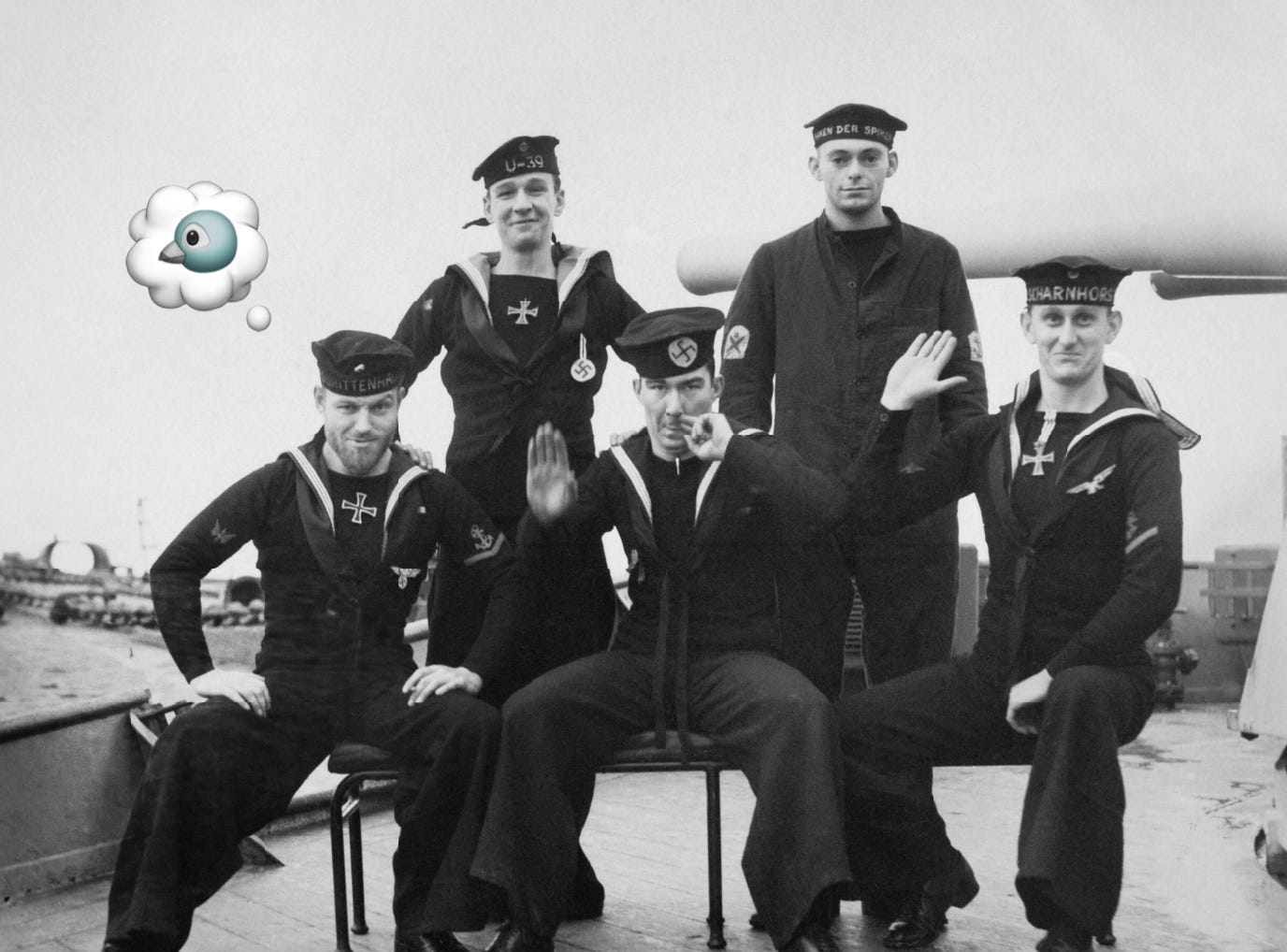The Wit’s Guide to Skylarking
Or, a tolerable unseriousness

In the beginning, skylarking was good. When sailors were done with their work, they would engage in frolicking and mild horseplay among the rigging of the boat. Their commanders not only tolerated this behaviour but encouraged it. As Midshipman Horatio Hornblower sternly warns his crew in the eponymous swashbuckling novel of the Royal Navy: “I want to see you in the dog watches skylarking on deck, not skulking in the cable tiers like a lot of Frenchmen.”
“Never get up with the lark. Get up only for a lark.”
— John Boyd Orr
But then skylarking became transgressive. Naval historian Todd DePastino hypothesizes that it began with the professionalization of the sailing services. Back when men were dragooned into serving against their will, it was seen as a wise practice to let them joke around a bit as a way to keep them from mutiny. But with a voluntary and decently paid service, this began to seem like a luxury. Insouciance became frowned upon in the admiralty because the admiralty is all about souciance. As Winston Churchill memorably remarked, Royal Navy tradition is rum, sodomy, and the lash, and also plenty of souciance.
“Because the road is rough and long
Shall we despise the skylark’s song?”
— Anne Bronte
A survey of skylarking through the ages in Green’s Dictionary of Slang highlights the grave consequences that ensue when boisterous fun is had. From the Chicago Tribune in 1886: “He used formerly to be one of the great skylarkers, always knocking plug hats over their owners’ eyes.” In 1890: “They commenced skylarking with the result that the boat capsized.” A 1945 newspaper report: “A group of boys who were skylarking on a London tube platform pushed a woman on the line.” Do you see what happens when you skylark? Innocent people get pushed onto train tracks, boats sink, and hats are knocked over eyes!
“You can muffle the drum, and you can loosen the strings of the lyre, but who shall command the skylark not to sing?”
— Kahlil Gibran
Even today, claiming you were skylarking is rarely a good defense. In 2023, when a police officer in Sydney pointed his firearm at a colleague who threatened to spoil the ending of Top Gun: Maverick, his lawyer claimed it was a “case where the skylarking and tomfoolery in an employment context has gone awry.” The judge didn’t buy it, even though tomfoolery qualifies as a contextually clever pun, because it’s impossible to spoil that movie.
“Hope is the gay skylarking pajamas we wear over yesterday's bruises.”
— Benjamin De Casseres
Obviously, this is the part where I deliver a full-throated defense of skylarking. Or rather, I defer to Kurt Vonnegut, the patron saint of skylarking, and his 1970 commencement speech titled “What To Do When You Have the Power; In the Meantime, Remember to Skylark!” Says Kurt:
“Do not take the entire world on your shoulders. Do a certain amount of skylarking, as befits people of your age. ‘Skylarking,’ incidentally, used to be a minor offense under Naval Regulations. What a charming crime. It means intolerable lack of seriousness. I would love to have a dishonorable discharge from the United States Navy — for skylarking not just once, but again and again and again.”
“Levity is often less foolish and gravity less wise than each of them appears.”
— Charles Caleb Colton
I once wrote a book called Elements of Taste, wherein I theorized that you could understand all of culture through the five cardinal tastes. I think it still holds up, but let’s find out?
Get Wit Quick No. 319 studiously avoided any ornithology, because of course the only bird for me is the mascot magpie named Magnus after the magician in Robertson Davies’ Deptford Trilogy. The title font is Vulf Sans, the official typeface of the band Vulfpeck. The book was Elements of Wit: Mastering The Art of Being Interesting. A light jostling of the ❤️ below is all in good fun.
All my GWQ VIPs get just a little bit more each week in a special segment known throughout the land as Quip Service. This week:
Three observations on seeing a long-lost friend
Keep reading with a 7-day free trial
Subscribe to Get Wit Quick to keep reading this post and get 7 days of free access to the full post archives.





